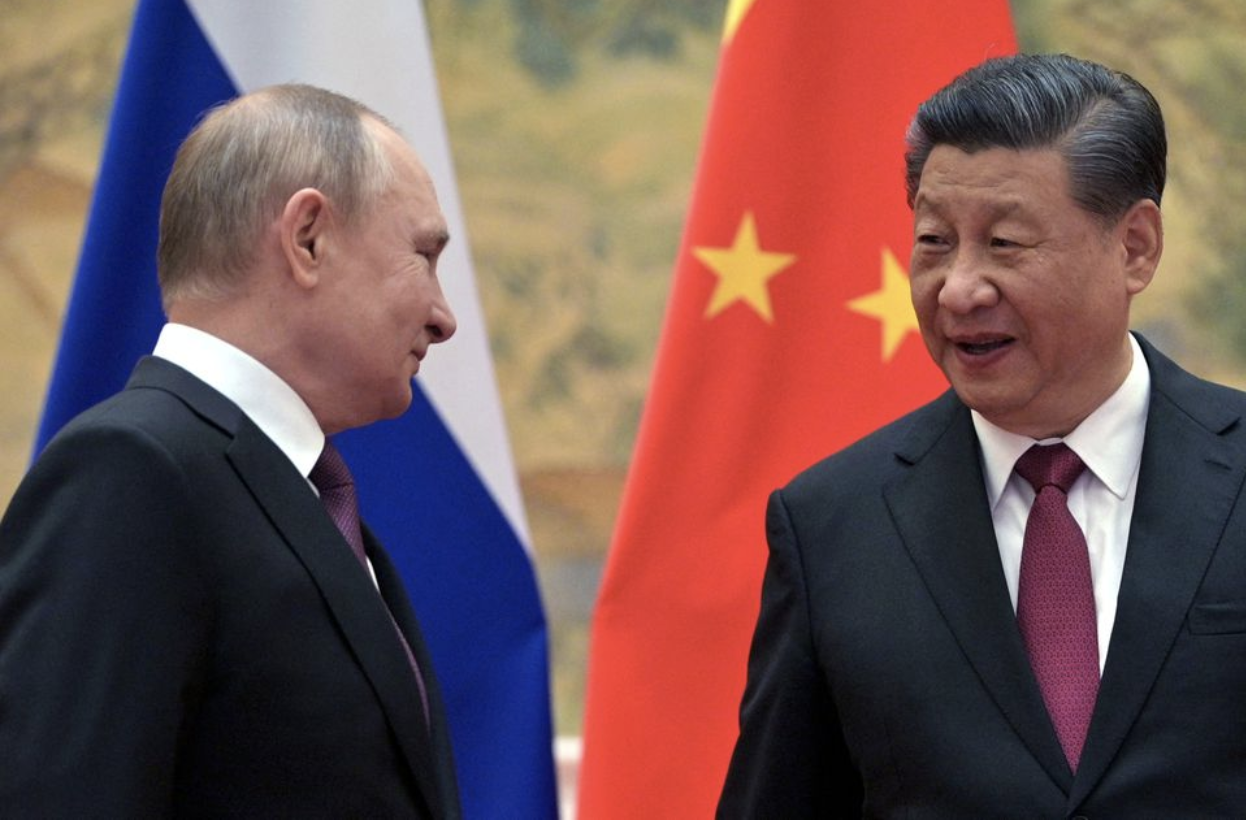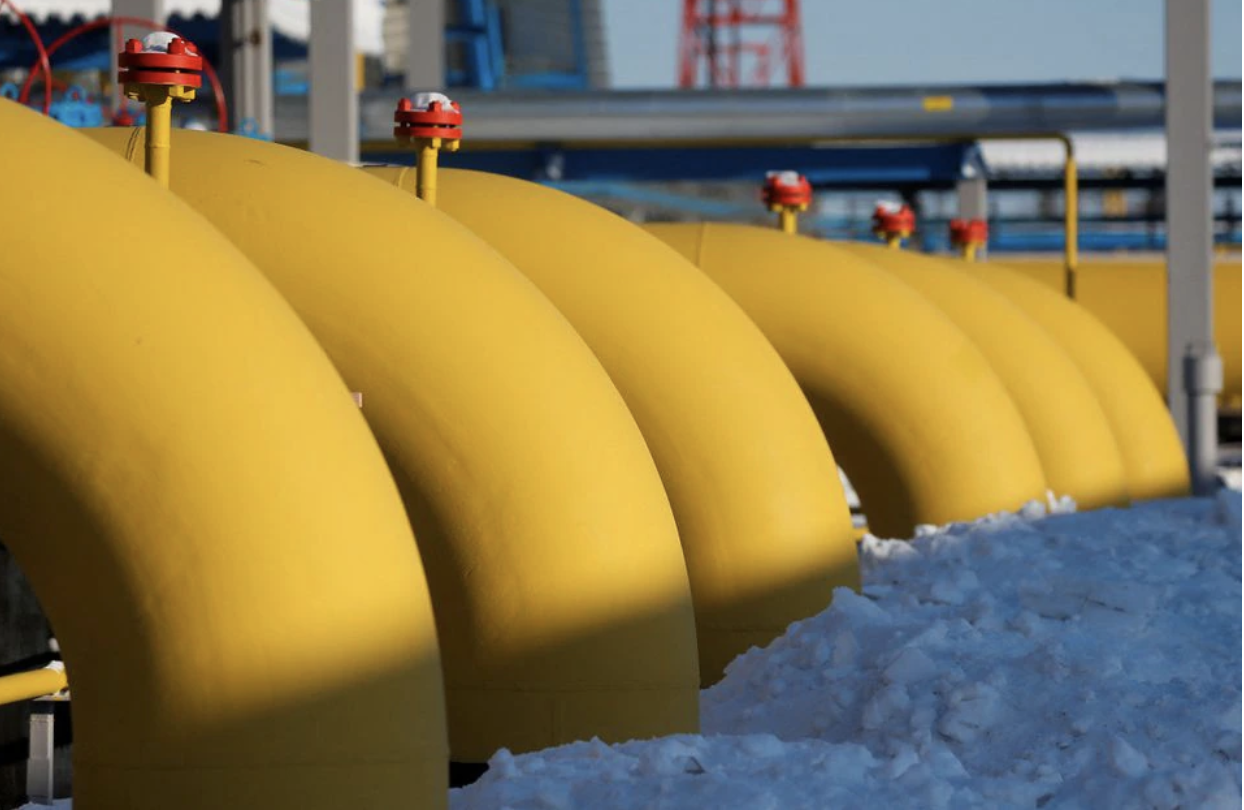Russia and China Approve Gas Pipeline to Decrease Dependence on the West
Russian President Vladimir Putin attends a meeting with Chinese President Xi Jinping in Beijing, China. Photo: Sputnik / REUTERS
On Feb. 4, Russian company Gazprom agreed a 30 year deal, selling 10 billion cubic meters (bcm) of gas a year to the Chinese state-owned company CNPC (China National Petroleum Corporation). Gazprom, which has a monopoly over the distribution of fossil fuels through Russian pipelines, announced the construction of a pipeline that will connect Sakhalin to the Heilongjiang Province in Northeast China, and will begin operating in two to three years.
This project builds on the existing Power of Siberia pipeline, a natural gas pipeline that connects Russian oil exclusively to China. In 2021, the Power of Siberia pipeline delivered 16.5 bcm of LNG (liquified natural gas). Under the new deal, Russia seeks to supply 48 bcm per year through the combined pipelines. This ambitious increase in natural gas output rests on the creation of new infrastructure and connecting previously isolated natural gas fields from the isolated Far East island Sakhalin. That being said, what are the motivations behind this significant investment in the historically sparse region?
Part of Gazprom's Power Of Siberia project in the Amur region, Russia. Photo: Maxim Shemetov / Reuters
Besides expanding upon the Power of Siberia pipeline, there are other geopolitical elements at play. According to Chris Miller, an assistant professor of International History at Tufts University, the deal is a natural extension of both countries’ security interests.
He says, “Russia's focus on gas exports to China is driven partly by geography and economics — and partly by politics. China says it plans to phase out coal, in which case it will need to consume more gas. Beijing is worried about reliance on importing gas by sea, however, in case it gets cut in time of crisis.”
This mutual benefit could not have emerged at a better time for Russia. Following US pressure on Nord Stream 2, Russia lacks many feasible options to develop economically. Having a bordering state that is both friendly and open to economic development, particularly in Russia’s primary industry, is an incredibly lucrative prospect.
However, this deal is clearly more than an economic decision. Highlighting the political signaling of the deal is the currency it was conducted in - the Euro. Seeking to diversify from the USD, this gas deal signifies the continued posturing of both Russia and China away from Western influence.
With Biden and other Western leaders posturing against Russia in Ukraine, it seems clear that America and the West have pushed Russia and China closer together. How much further these two countries will build ties, only time can tell.


